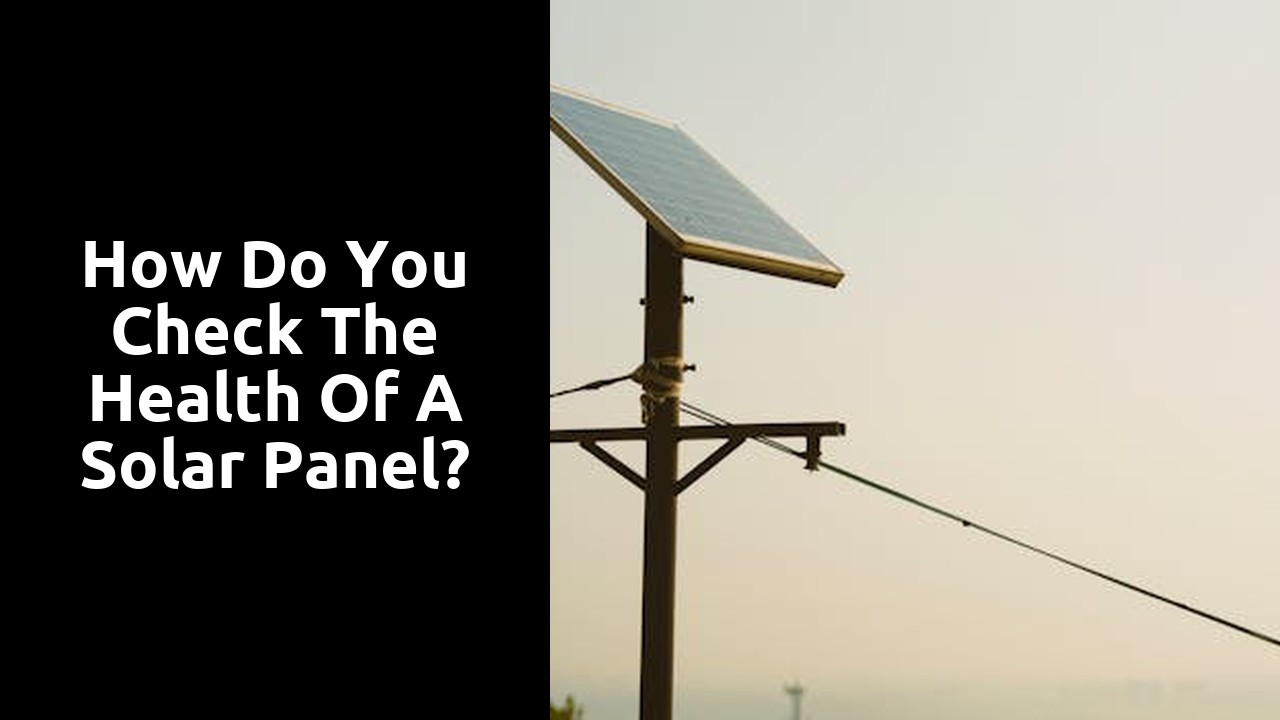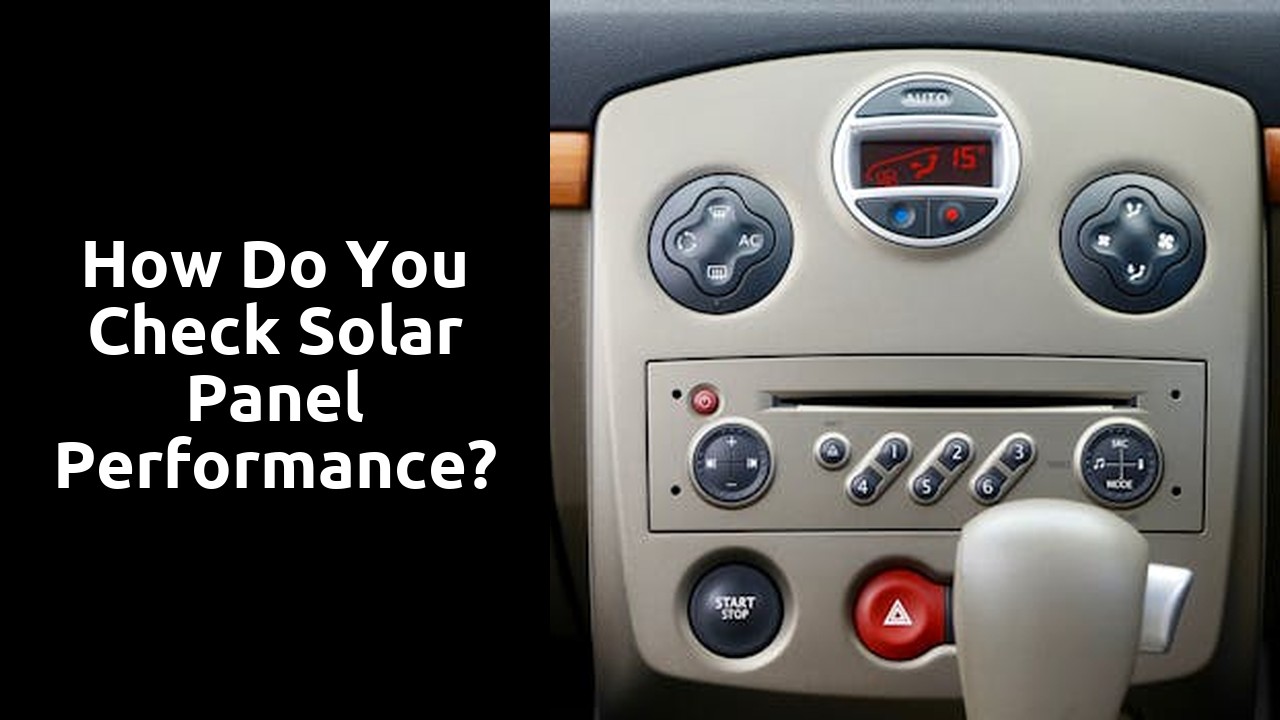
Understanding Solar Panel Degradation
Understanding Solar Panel Degradation
Solar panel degradation refers to the gradual loss in efficiency and performance of solar panels over time. This degradation is a natural process that occurs as the panels are exposed to various environmental factors such as sunlight, temperature fluctuations, and moisture. Over time, solar panels can lose their ability to convert sunlight into electricity as efficiently as when they were new. This degradation can result in reduced energy output from the solar panel system, impacting the overall performance of the system.
Regular monitoring of solar panel degradation is essential to ensure the maximum efficiency and longevity of a solar panel system. By conducting Solar Panel System Performance Testing regularly, owners can identify any declines in performance and take appropriate measures to address them. Understanding the factors that contribute to degradation, such as exposure to harsh weather conditions or physical damage, can help owners proactively manage and maintain their solar panel system for optimal performance.
Testing Panel Output with a Multimeter
Testing the output of your solar panels using a multimeter is a fundamental aspect of maintaining the health of your solar panel system. By measuring the voltage and current output of each panel individually, you can identify any potential issues early on. Solar panel system performance testing with a multimeter allows you to ensure that each panel is functioning correctly and producing the expected amount of electricity.
To conduct the test, start by setting the multimeter to the voltage setting and then connect the probes to the positive and negative terminals of the solar panel. Take note of the reading displayed on the multimeter. Next, switch the multimeter to the current setting and repeat the process. By comparing these readings to the specifications provided by the manufacturer, you can assess the overall health and efficiency of your solar panel system.
Tips for Maintaining Solar Panel Health
Maintaining the health of your solar panels is crucial to ensure optimal performance and longevity of your system. Regularly cleaning the panels is essential to prevent dirt and debris build-up that can hinder sunlight absorption. It is recommended to clean the panels with a soft cloth or sponge and gentle soap to avoid scratching the surface. Additionally, trimming any nearby trees or bushes that may cast shadows on the panels can help improve their sunlight exposure.
Monitoring the performance of your solar panels is also key to maintaining their health. Conducting regular Solar Panel System Performance Testing using a multimeter can help you identify any issues with the output of the panels. By keeping a close eye on the performance metrics, you can detect any potential problems early on and take necessary actions to address them promptly.
Consulting a Professional for Indepth Inspections
When it comes to ensuring the longevity and efficiency of your solar panel system, consulting a professional for in-depth inspections is paramount. These trained experts possess the knowledge and equipment necessary to conduct thorough assessments that the average homeowner may not have access to. Through their expertise, they can identify any underlying issues that could be affecting the performance of your solar panels. By engaging a professional for these inspections, you can gain valuable insights into the current health of your solar panel system.
Professional inspections often involve comprehensive checks on every component of your system, including the panels, inverters, and wiring. They may also perform Solar Panel System Performance Testing to gauge the overall efficiency of your setup. This type of testing can reveal any potential areas of concern that need to be addressed to optimize the performance of your solar panels. Ultimately, by investing in professional inspections, you are taking proactive steps to ensure that your solar panel system continues to operate efficiently for years to come.
Tools for Conducting Solar Panel Health Checks
Tools for Conducting Solar Panel Health Checks include a Multimeter, which is an essential device for measuring the electrical output of the solar panels. By connecting the multimeter to the panels, you can monitor the voltage and current to ensure they are functioning optimally. This tool is particularly useful for detecting any issues with the solar panel system performance testing that may arise due to weather damage or wear and tear.
Another valuable tool for monitoring the health of solar panels is a Solar Irradiance Meter. This device measures the amount of sunlight hitting the panels, helping you assess their efficiency and performance. By regularly using a Solar Irradiance Meter, you can ensure that your solar panels are receiving adequate sunlight to generate the maximum amount of energy possible. This tool is crucial for maintaining the overall health and functionality of your solar panel system.
Using a Solar Irradiance Meter for Accuracy
When it comes to ensuring the accuracy of solar panel system performance testing, using a solar irradiance meter is essential. This tool measures the intensity of sunlight that reaches the panels, providing valuable data on their efficiency. By using a solar irradiance meter, you can accurately assess whether your solar panels are receiving the optimal amount of sunlight to generate electricity efficiently.
Solar irradiance meters are designed to gauge the solar irradiance level in watts per square meter. This data is crucial in determining if your solar panels are operating at their peak performance. By regularly using a solar irradiance meter to monitor the sunlight intensity, you can identify any drop in performance early and take necessary steps to maintain the health and efficiency of your solar panel system.
FAQS
How can I determine if my solar panel is in good health?
You can assess the health of your solar panel by regularly checking its output using a multimeter and ensuring it is producing the expected power levels.
What is solar panel degradation, and how can I monitor it?
Solar panel degradation refers to the gradual reduction in a panel's efficiency over time. You can monitor it by keeping track of the panel's output and consulting a professional for detailed inspections.
What are some tips for maintaining the health of solar panels?
To maintain the health of your solar panels, ensure they are clean, free of shading, and regularly inspected for any signs of damage or wear.
When should I consider consulting a professional for an in-depth inspection of my solar panels?
It is advisable to consult a professional if you notice a significant drop in your panel's output, physical damage, or any other issues that you are unable to resolve on your own.
What tools can I use to conduct health checks on my solar panels?
You can use a multimeter to test the panel's output and a solar irradiance meter for accurate measurements of sunlight intensity reaching the panels.
How can a solar irradiance meter help in checking the health of solar panels?
A solar irradiance meter measures the amount of sunlight hitting the panels, which can help you determine if they are receiving optimal sunlight levels for efficient operation."""
